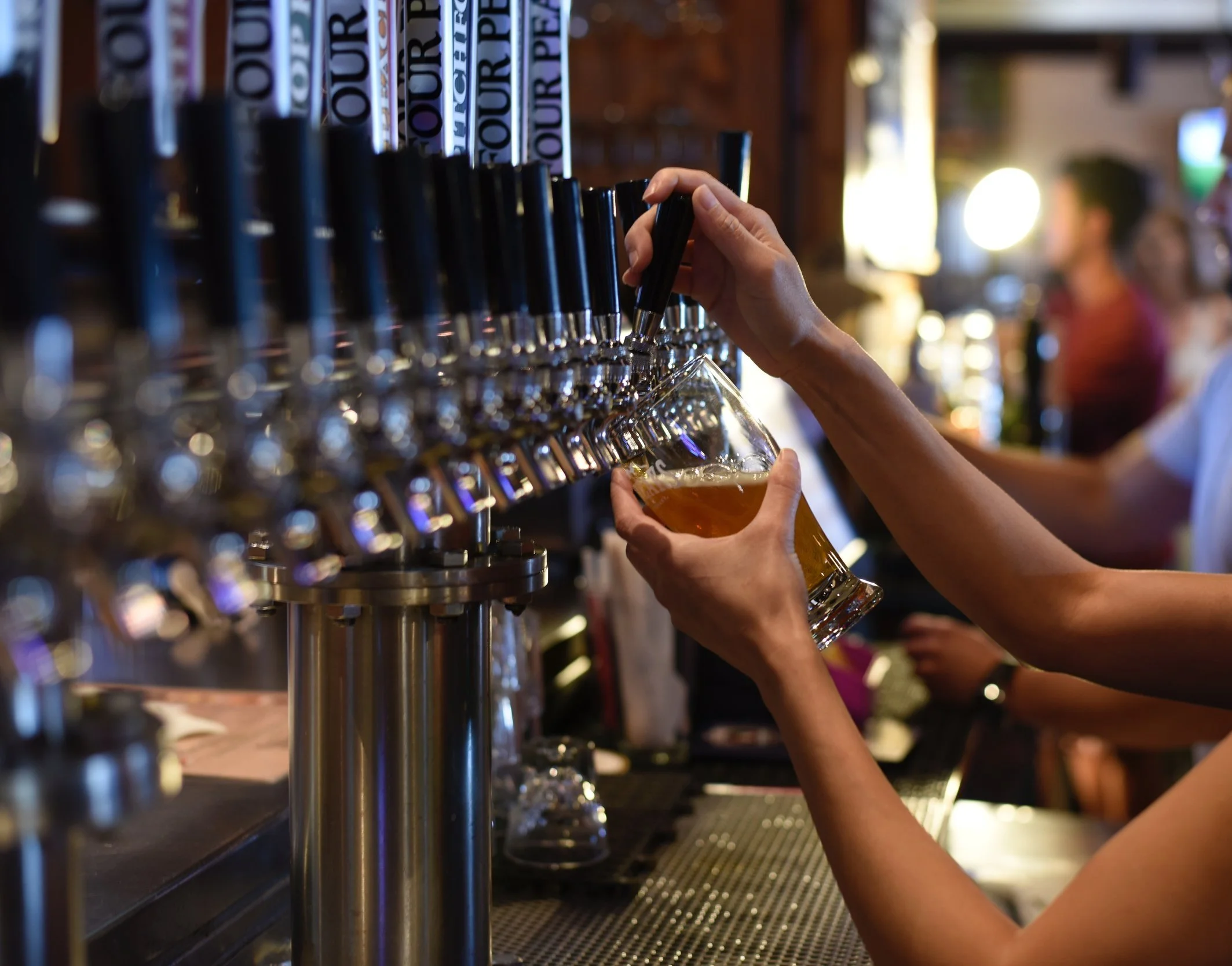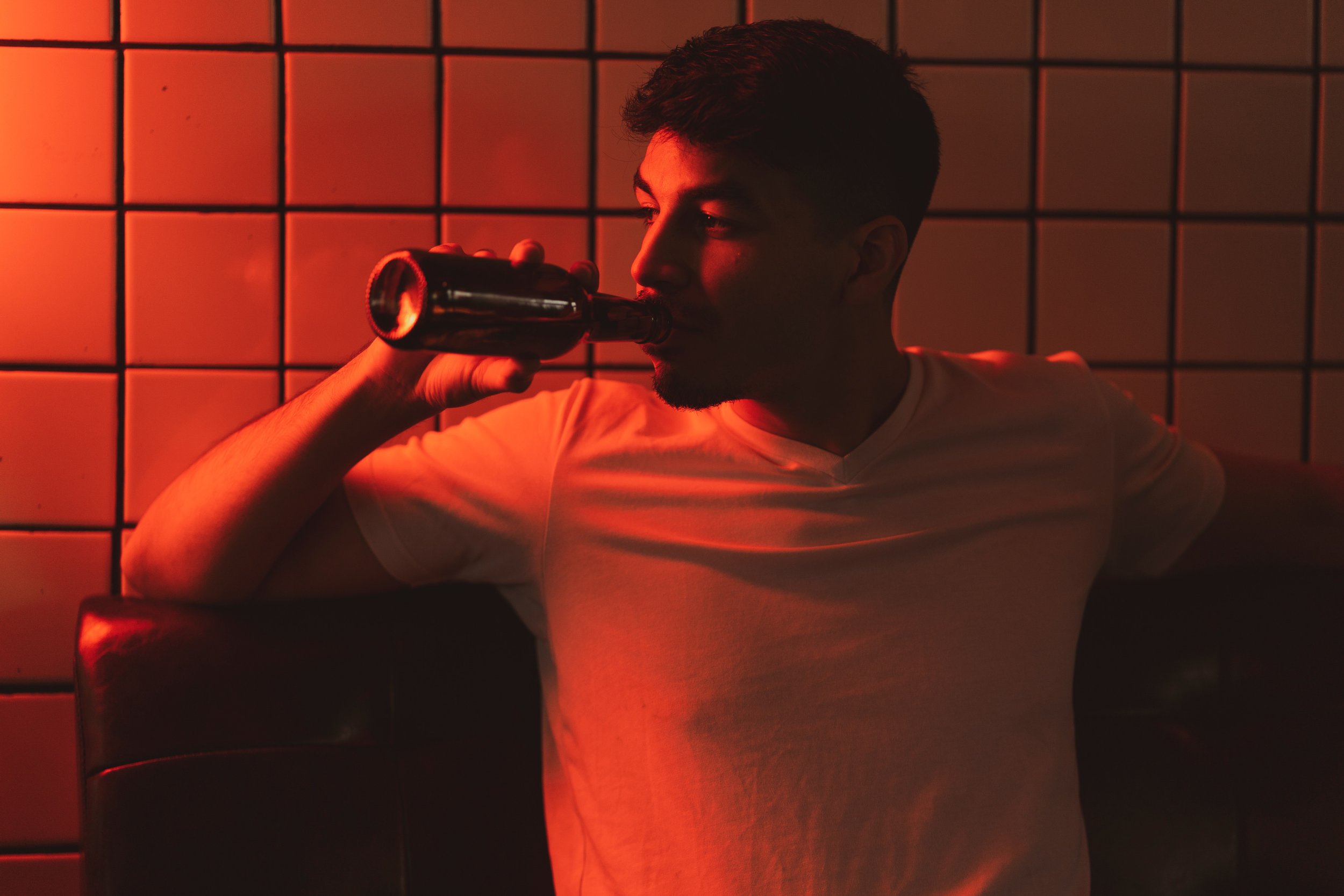College binge drinking has become a new norm for young adults, especially college students. The term “blackout” is widely used. “Blackout” refers to a person getting so intoxicated that they fail to remember the night’s events the following morning. Although “blacking out” is extremely dangerous and negative to one's overall health, it is a part of daily life for many college students.
It is very common for college students to participate in binge drinking, which makes this a public health issue. Alcohol is more accessible to college students than high school students because there is a mix of people who are underage but still participate in drinking and those who have turned the legal age to purchase alcohol. There is almost always free alcohol given away at college parties.
College binge drinking has been routinely highlighted in the overall college experience. A phrase used regularly is “blackout or get out” meaning that you should only be at the event if you plan on getting extremely intoxicated.
Anchor Therapy is a counseling center in Hoboken, NJ with psychotherapists specialized in helping children, teens, adults, and couples with anxiety, depression, relationship issues, trauma, and life transitions. Anchor Therapy is accepting new clients and is now providing in-person sessions and telehealth (video/phone) sessions to residents of New Jersey and New York.
Why Do College Students Binge Drink?
To Cope With Stress:
Many college students use drinking as a way to cope with the stress they endure throughout the school week. Drinking is also seen as a right of passage, and many students view alcohol as a reward for getting them through a tough week of schoolwork and additional responsibilities. While alcohol may be okay in moderation for those who are legally allowed to drink, many students are not limiting themselves to one or two drinks. Instead, they are getting drunk to numb their feelings.
2. Social Anxiety:
Furthermore, the majority of college students experience intense anxiety. Due to social settings inducing social anxiety, some college students may normalize the use of heavy drinking to reduce their anxious thoughts in social settings. Binge drinking within the college community is not only used socially but also as a coping method for the stress of school and being in large groups where you do not know most people. Many people under the influence find it easier to get along with people or to meet new friends.
In addition, the “blackout” culture and lifestyle itself produces many other anxieties that students have to endure. This includes the experience of “hangxiety,” meaning intense anxiety after waking up from a night where you have no recollection of what happened. People often ask themselves, “What happened? Where did I go? What did I do?” and, in extreme cases, some people may even wake up in an unrecognizable place. In other words, the activity they were doing to destress is ultimately making them more anxious.
College binge drinking can lead to depressive and anxious mental states for students. There are other outlets to de-stress that you can employ that will not come with the depressive side effects as that of alcohol.
For example, you can to do the following to de-stress:
Work out
Leisurely read
Meditate
Hang out with your family or friends
Watch your favorite tv show or movie
College binge drinking can also lead to alcohol dependency in the future. Many students leaving college have relied on alcohol for the last four years of their life, so when they enter the workforce, they still use drinking as a coping mechanism to destress.
Television shows and movies highlight the overindulgence of alcohol as a “normal” outlet, especially for younger adults.
Some TV show examples of alcohol abuse include:
Gossip Girl
Euphoria
Vanderpump Rules
Skins
Shameless
Neighbors
Project X
This can make the binge drinking culture seem normal since college students watch the behavior on television. People usually lean towards alcohol when they are in uncomfortable situations and they think a few drinks will help take the “edge” off.
Why Should You Avoid Binge Drinking?
Negative effects of binge drinking include:
Safety risks for yourself or the people around you
Health issues
Drunk driving
Academic problems
Problems with schoolwork can arise when you are placing more importance on going out with your friends than doing your homework or studying. In severe situations when people drink too much and get alcohol poisoning, hospitalization can occur. If you continue to binge drink past your college years it can have devastating effects on your heart and liver. Alcohol is an addictive substance and regularly over-consuming it can lead to a life of alcoholism.
Popular Drinking Terminology
“Drunkorexia” is another widely known term that means to skip meals or to eat less so it is easier to get drunk faster. This leads to anorexic tendencies which can be hard to break. Not providing your body with proper nutrients is an unhealthy habit since your body needs food to function properly. When you do not eat and then drink alcohol, the alcohol enters your bloodstream faster which will get you in an intoxicated state more quickly. When this happens, people tend to over-drink.
“Puke and Rally” is a term that means to throw up whatever you have in your stomach so that you can drink more.
“Pulling trigger” means to make yourself throw up on purpose so you can consume more alcohol.
“Freshman 15” is often viewed as a joke. It refers to the common occurrence of students leaving home for their first year of college and gaining some weight, particularly 15 pounds. The cause of weight gain may vary person-to-person. For instance, one student may gain weight due to stress while another student is over-drinking. While it is completely normal to fluctuate weight throughout your life, this term is often used in the context of alcohol consumption.
College binge drinking is a problem that affects a lot of college students worldwide. When college students think of the typical college experience, they may think about partying and drinking, not the academic side of things which is the main reason they are attending school. It is completely normal for those of legal age to have a drink while out with friends; however, blacking out is not a healthy or sustainable habit. While it may be difficult to change the "norm" associated with college drinking, it is helpful to know your limits and consume alcohol in a safe environment.
Mary Mayo
is a first year intern with Anchor Therapy. She is graduating from the University of Delaware in the Spring as a senior with a degree in Human Services.









